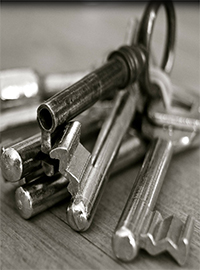| Unlock 'em Up? |
 |
|
By Mona Charen
Friday, October 09 2015 |
The Justice Department has announced that it will begin releasing 6,000 "nonviolent" inmates from federal prisons starting at the end of this month. Welcome to the era of de-incarceration. At a conference named for former New York Mayor David Dinkins (who presided over the city at a time of runaway crime), Hillary Clinton decried the number of Americans behind bars and declared, "It's time to change our approach. It's time to end the era of mass incarceration." In this, she is joined by Bernie Sanders and other Democrats, and also by Charles Koch, who wrote recently that "Overcriminalization has led to the mass incarceration of those ensnared by our criminal justice system, even though such imprisonment does not always enhance public safety. Indeed, more than half of federal inmates are nonviolent drug offenders." Sen. Rand Paul has called mass incarceration "the new Jim Crow." And Carly Fiorina suggested during the last debate, "We have the highest incarceration rates in the world. Two-thirds of the people in our prisons are there for nonviolent offenses, mostly drug-related. It is clearly not working." Not exactly. The U.S. does have the highest incarceration rate in the world (that is, among nations that list these data honestly), but the assertion that most of the people incarcerated are there for nonviolent crimes is false. Advocates for de-incarceration often cite the number of federal prisoners who committed nonviolent drug offenses. This is highly misleading. Of the 2.2 million inmates in America, only about 200,000 are federal prisoners. About half of federal inmates are sentenced for drug crimes, but this shouldn't shock anyone. Nearly all violent crimes are state matters. It's a federal crime to transport a kidnap victim across state lines, to attempt to assassinate a federal official and so forth. But robberies, rapes, assaults and murder are mostly state matters. Among state inmates, only 1 in 6 is a drug offender. Among the 50 percent of "nonviolent" federal drug offenders, it's difficult to know how many were arrested for a violent crime and plea-bargained to a lesser offense. Nor do we have good data on how many were previously convicted of a violent crime. A 2004 Bureau of Justice Statistics study found that 95 percent of those who served time in state prisons for nonviolent crimes had a preceding criminal history (typically 9.3 arrests and 4.1 convictions) and 31 percent had a history of arrests for violent crime. Among state prisoners, 54 percent are there for violent offenses. Perhaps the 46 percent who are incarcerated for nonviolent crimes should be punished some other way. But to design good policy on that, we'd have to grapple with a number of issues. What do you do with offenders who are placed on probation or parole but continue to offend? What about the "crime in the streets versus crime in the suites" problem? Should we sentence embezzlers, child porn dealers and Medicaid cheats to community service but keep armed robbers behind bars? How will that affect the perception that incarceration is the "new Jim Crow"? Many on both sides of the political spectrum are eager to leap aboard the "de-incarceration" bandwagon. It's a way to show sympathy with African-Americans and (to a much lesser degree) Hispanics, who are disproportionately represented among inmates. But the primary victims of crime are also African-Americans and Hispanics. If "unlock 'em up" becomes the new conventional wisdom, more innocent people will suffer and more businesses will flee. We've become complacent about crime because the crime rate has declined drastically since 1990. According to the FBI, violent crime increased by nearly 83 percent between 1973 and 1991 -- a period of criminal justice leniency. From 1991 to 2001, when incarceration rates increased, violent crime declined by 33.6 percent. The decline has persisted. There are many theories about the cause of the drop in crime (abortion, removing lead from paint, the waning of the crack epidemic, policing strategies), and some or all of those factors may have played a part, but the "incapacitation" argument -- criminals who are behind bars cannot be mugging people -- seems awfully strong. It would, of course, be a better world if fewer Americans were growing up in neighborhoods where fatherlessness, intergenerational government dependency and poor schools contribute to high rates of crime. But it's hard to see how releasing more criminals to prey upon those very neighborhoods is the answer. ---------------------------------------------------------------------------------------------------------------------------------------- Mona Charen is a Senior Fellow at the Ethics and Public Policy Center. |
Related Articles : |
























